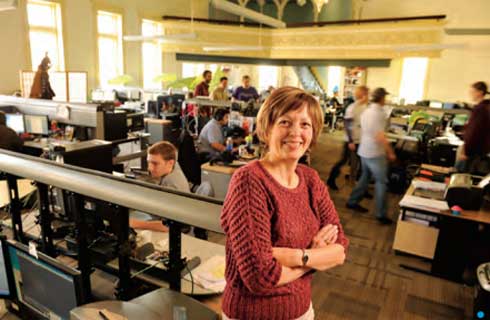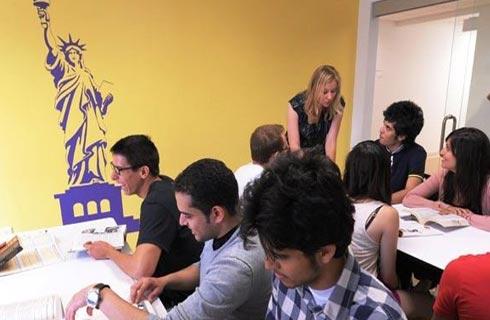国际学生入学条件
Applicants for admission must be graduates of a recognized university, college, or institute as well as show evidence of scholarly achievement. Except where otherwise stated in the Admission Requirements of a particular program, degree students must have a four year bachelor's degree or its equivalent with at least second class standing (B) based on their last 20 half courses or equivalent.
An applicant holding a degree other than one in the discipline area to which admission is sought will be considered on the basis of courses taken and academic standing. A Qualifying Year at the undergraduate level may be required to meet the admission standards. Courses taken as part of a Qualifying Year can not be used as credit towards a graduate degree.
Our minimum admission requirement for international applicants is 75% or 3.0 on a 4 point Canadian scale, with an accredited university degree equivalent to a Lakehead University 4 year degree.
An acceptable three year or four year Bachelor's degree and Bachelor of Education or equivalent, each with at least a second class standing (B) OR Two years professional experience and a minimum "B" average in a four-year Bachelor's degree or equivalent
As an exception to the Faculty of Graduate Studies Master's Regulations regarding Proficiency in the English Language, the admission to the MEd program requires a higher standard. English is the primary language of communication and instruction in the program. Applicants from other countries who have not completed a degree at a university where the primary language of instruction is English must pass the Test of English as a Foreign Language (TOEFL) with a minimum internet-based score of 100, or minimum 250 computer-based score, or minimum 600 paper-based score, or an equivalent demonstration of proficiency.
Academic References are now optional for our MEd program
Applicants with an average between 70% and 75%, if accepted, are initially admitted to the course route. Once admitted, a student may request a transfer to the portfolio or thesis route. Requests must include a written confirmation from a full-time faculty member who is prepared to act as the student's thesis supervisor.
展开
IDP—雅思考试联合主办方

雅思考试总分
6.0
了解更多
雅思考试指南
- 雅思总分:6
- 托福网考总分:100
- 托福笔试总分:600
- 其他语言考试:Canadian Academic English Language Assessment (CAEL) with a minimum score of 80
CRICOS代码:
申请截止日期: 请与IDP顾问联系以获取详细信息。
课程简介
The Faculty of Education at Lakehead University offers a Master of Education program designed to meet your professional and academic goals and interests. Our Master of Education (MEd) program provides you with a unique learning opportunity, which addresses the current landscape of both education and research. Our program consists of two distinct fields of study, Educational Studies and Education for Change. <br>Our Education for Change field provides an innovative learning experience that allows you to complete your Master's of Education with one of the following specializations: Environmental and Sustainability Education (ESE), Indigenous Education (IE), Social Justice Education (SJE), One of these may also be combined with the Gender and Women's Studies specialization.<br>Our Educational Studies field offers you the opportunity to earn your Master's of Education while studying educational research, theory, and practice in a variety of educational contexts, as well as the chance to specialize in Gerontology or Gender and Women's Studies. Our MEd program is both flexible and responsive to the needs of education professionals. You can pursue either field of study via a Thesis, Portfolio, or Course route. Both fields of study accommodate a wide range of interests and are available for full-time or flex-time studies. We are also the home of two Canada Research Chairs (in Environmental Education, Arts Integrated Research), the Centre for Place and Sustainability Studies, the Multi-Data Convergence Laboratory, and the Canadian Journal of Environmental Education.<br>IE is grounded in Indigenous historical, philosophical, sociocultural, and political foundations and Indigenous research, protocols, and practices that focus on educational aspects of the politics of colonization and decolonization, honouring Indigenous knowledges and relationships to land, exploring Indigenous approaches to well-being, and revitalizing traditional worldviews and languages.
展开







 预科
预科 奖学金
奖学金 实习机会
实习机会 在校学习
在校学习 跨境学习
跨境学习 校园授课-线上开始
校园授课-线上开始 在线/远程学习
在线/远程学习

 尼亚加拉学院
尼亚加拉学院

 西蒙菲莎大学
西蒙菲莎大学

 康考迪亚大学
康考迪亚大学

 康考迪亚大学
康考迪亚大学

 康考迪亚大学
康考迪亚大学

 温哥华岛大学
温哥华岛大学































